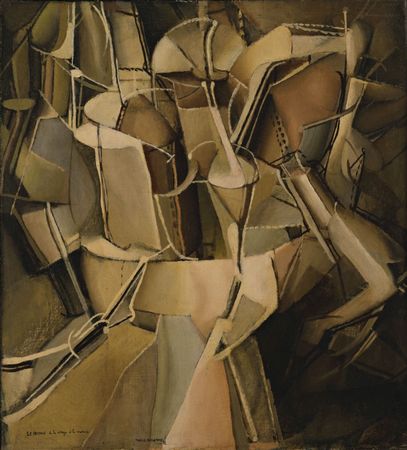Saturday, 31 May 2014
On the Search for the Waters of Oblivion
Tuesday, 27 May 2014
On the Passage from Virgin to Bride
Duchamp's (1912) painting The Passage from Virgin to Bride (now at the MOMA in NYC) was one of his last paintings, the kind of art he would come to deride as 'retinal art'.
Although it is obviously very abstract, I think it actually looks fairly bride-like in miniature or from a distance, as this screen shot from Google search might make clear (I love the range of colors you get from doing a Google search for copies of 'the same image'):
Saturday, 17 May 2014
On Typographically Interpreting The Bald Soprano
I love Massin's typographic version of French-Romanian playwright Eugene Ionesco's amusing and absurd play The Bald Soprano.
Sunday, 11 May 2014
On a Penchant for Activities in the Pop Dada Vein
Following on from Jaap Blonk's recital of German Dadaist Kurt Schwitters' nonsense poem Ursonate (and as kind of a pop-culture equivalent), I really enjoy this take by Italian singer/comedian Adriano Celentano on what American English sounds like.
Thursday, 8 May 2014
On a Penchant for Activities in the Dada Vein
I appreciate Dutch performer Jaap Blonk's technologically-enhanced performance from memory of German Dadaist Kurt Schwitters' nonsense poem Ursonate, which Schwitters developed over many years starting in 1925.
I also enjoy this description from the BBC website of Jaap Blonk:
-
"His unfinished studies in physics, mathematics and musicology mainly created a penchant for activities in the Dada vein, as did several unsuccessful jobs in offices and other well organised [sic] systems."
Subscribe to:
Comments (Atom)



